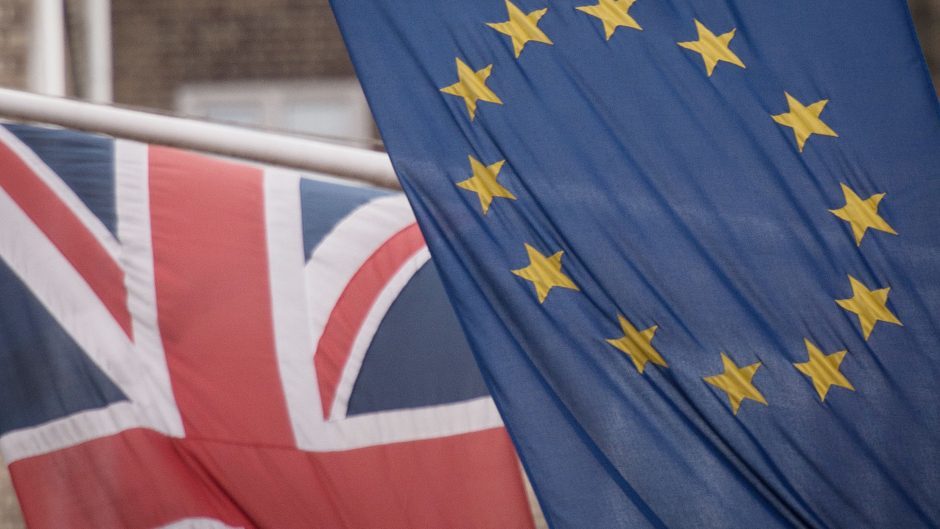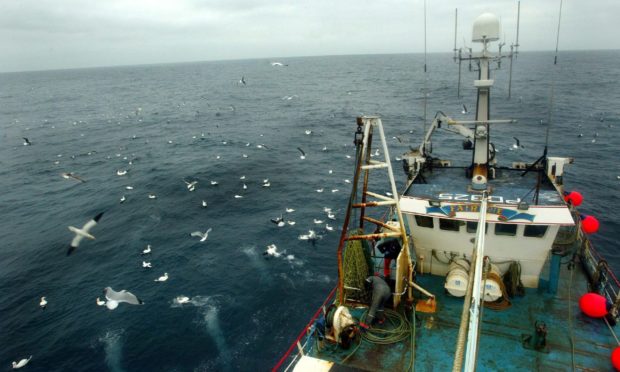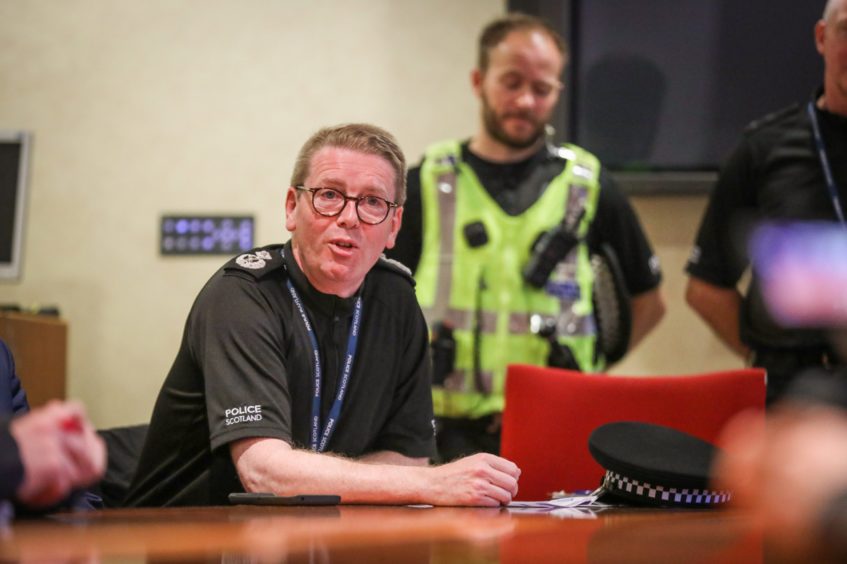Police have warned it is “unrealistic and impractical” to expect officers to board North Sea vessels to enforce fishing rules after the Brexit transition.
Deputy Chief Constable Will Kerr told MSPs on the policing sub-committee at Holyrood there needed to be a “bit of realism” about the force’s capabilities.
And he raised concerns “tensions” could boil over next year, including at fishing ports in Scotland.
Uncertainty has surrounded the UK’s ability to police its waters after leaving the Common Fisheries Policy, which currently determines how many fish countries can catch in different areas.
While giving evidence on Police Scotland’s preparations for Brexit, Mr Kerr was asked about the role of the force in policing illegal fishing, smuggling and port closures.
He said: “There needs to be a bit of realism as well about what can practically be done offshore, as opposed to what evidence we can gather, the role of police in Scotland, onshore.
“So obviously this relates to activity outwith the EEZ, so the European Economic Zone, which is set at 12 nautical miles.
“But in the middle of the winter, in the middle of the North Sea, it’s unrealistic and impractical for Police Scotland to be thinking about, even in terms of our preparation, looking at practical onboarding of fishing vessels which are 13 or 14 miles out into the North Sea, in the middle of January.
“That just isn’t going to happen, realistically.
“So what we’re looking at is contingencies with protocols to gather evidence where there have been breaches and to make sure that onshore we can actually start to address those and, if necessary, engage with the Crown to see what offences have been committed.
“Because there are a range of those tensions – not just tensions with fisheries and shipping offshore, either within or outwith that 12 nautical miles, or tension within the ports themselves among members of the fishing community, both Scotland-based and further afield.”
“There is undoubtedly widespread concern within the fishing sector about the heightened risk of illegal fishing in Scottish waters post Brexit and the damage this could do to the industry if these incidents occur.
Speaking afterwards, Orkney MSP Liam McArthur said: “Any illegal activity not only impacts on the livelihoods of fishermen but could also result in confrontations that put the safety of crews at risk.
Any illegal activity not only impacts on the livelihoods of fishermen but could also result in confrontations that put the safety of crews at risk.”
“For this reason, our fishing sector needs confidence that arrangements are being made by Police Scotland, SFPA and others to minimise the risks and respond in a timely fashion to incidents should they occur.
“I was therefore pleased to hear the deputy chief constable provide assurances that contingency planning is under way and that additional capacity has been made available to police our ports.
“Hopefully this proactive approach will help reduce the risk and address some of the concerns felt by Scotland’s fishing sector.”
Police in for ‘very busy’ year
Issues relating to fishing were just one of the potential problems on the radar for bosses at Police Scotland ahead of what they expect to be a busy year in 2021.
Warning of the possibility of a cumulative impact of a no-deal Brexit and the pandemic, Mr Kerr said: “As we enter 2021, as the winter weather worsens, hopefully we don’t end up with a pandemic flu on top of Covid-19, but next year is going to be very busy, anyway.
“There are a whole range of issues, not least the backdrop of constitutional, economic and ongoing operational issues, and all of those things will compound as the year continues.

“So we are just looking at all the risks to see how we can actually minimise the impact of those to the people of Scotland, and the disruption to Scotland.
“But inevitably there will be some, particularly if there is a non-negotiated outcome before December 31.”
Meanwhile, the policing sub-committee also heard from Detective Chief Superintendent Patrick Campbell about the “really significant” impact of the loss of the European Arrest Warrant, and shared information systems, after the Brexit transition.
He said new systems were being developed, but they would “result in slower, more bureaucratic processes” that are “sub optimal”.

